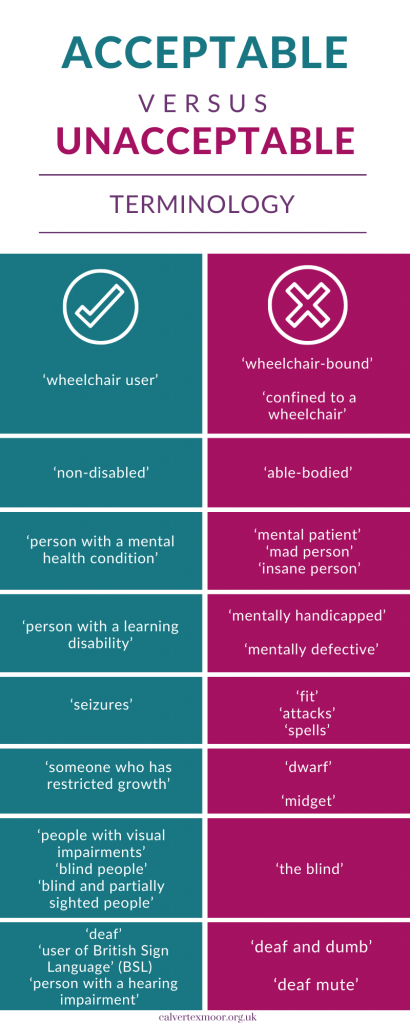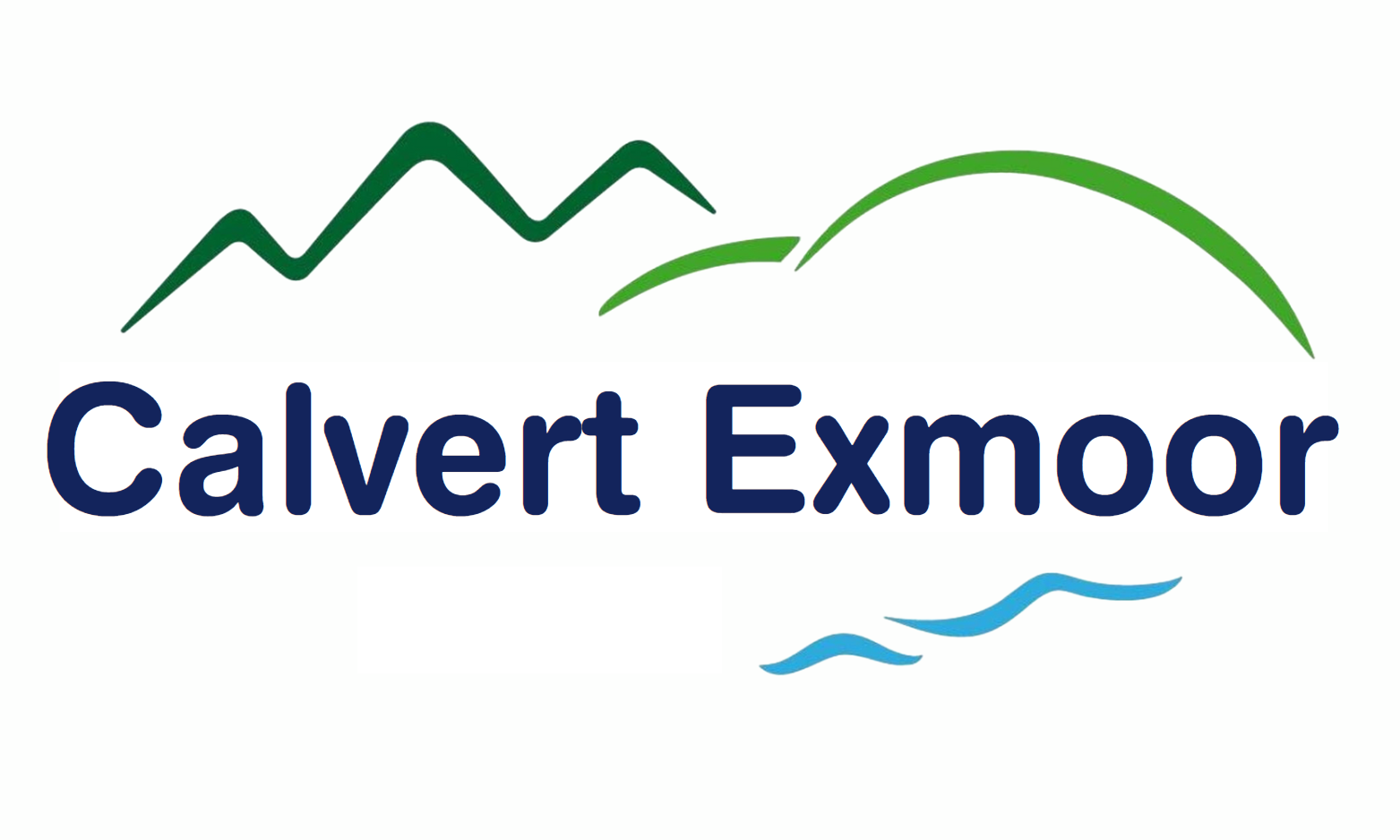
Acceptable and Unacceptable Disability Terminology
Using acceptable terminology to talk about disability is not merely about being ‘politically correct’ – it is about removing barriers, changing assumptions and creating an inclusive environment that welcomes all.
As an accessible activity centre that welcomes those of all ages and abilities, here at Calvert Exmoor, we are committed to ensuring everyone has a better understanding of inclusive language and behaviour.
We understand that, for many, using the wrong language comes from being unaware rather than being willfully hurtful; so, everyone must do what they can to educate themselves and help spread awareness of the proper vocabulary to use when discussing disabilities.
How to Talk & Write About Disability
It should be noted that not everyone will agree on what exactly is acceptable or unacceptable. However, while there may be some disparity when considering the correct terms on an individual basis, there are some general language guidelines that you should be aware of.
If you are unsure about what words and phrases to use, you should ask the person you are talking to to find out which terms they are comfortable with, as different individuals may identify with certain things.
Language is constantly evolving as definitions change over time and disability advocates become more prominent, so it is also vital to keep up to date with acceptable language and remain sensitive to the changes.
The recommendations that inform this guide comes from the Government website, the NHS, and various disability-specific charities that work with disability advocates to establish inclusive language guidelines.

The Social Model of Disability & Language
Developed by people with disabilities, this model concludes that individuals are disabled by the barriers that society inflicts, not by their impairment.
Language plays an essential role in this model as using the correct language helps change cultural assumptions and encourages the use of positive terms over negative and medical terminology.
Some may not relate to the social model of disability, so again, it is important to have conversations with the people with disabilities in your life to understand which terms they consider appropriate.
General Inclusive Terminology
You should not use the term ‘the disabled’ when referring to a collective group; instead, use ‘people with disabilities’ to emphasise the fact that individuals are not defined by a disability – the term disabled is descriptive, not a group of people.
Acceptable: people with disabilities
Unacceptable: the disabled, the handicapped
In regards to accessible facilities:
Acceptable: accessible toilets/parking, parking for blue or orange badge holders
Unacceptable: disability-friendly, disabled toilets/parking
You should also avoid using terms like ‘able-bodied’ as this implies people with disabilities are unable – instead, use ‘non-disabled’.
Individuals & Their Disabilities
When referring to individuals with disabilities:
Acceptable: has ‘x’/has a diagnosis of ‘x’ (name of the condition, e.g. autism, depression, epilepsy)
Unacceptable: illness, suffers from, handicapped, invalid
You should avoid negative terms relating to illness as some may not consider themselves unwell or ‘having a condition’. The term ‘diagnosed with’ is also unacceptable to some as it centres on a medical professional’s opinion rather than an individual’s.
Autism
When talking about autism:
Acceptable: a person with autism, a person on the autism spectrum
Unacceptable: people living with autism, an autistic
When talking about Asperger’s syndrome:
Acceptable: it is a form of autism
Unacceptable: it is not a rare or mild form of autism
Mobility
When discussing mobility:
Acceptable: wheelchair user, walks with a mobility aid
Unacceptable: mobility problems, wheelchair-bound
Saying someone is wheelchair-bound implies they are restrained or restricted, so the preferred term for most is ‘wheelchair user’. For many, this term more accurately represents the experience and doesn’t perpetuate stereotypes.
Many people may avoid engaging with the topic of disability and the correct terminology for fear of saying the wrong thing. However, learning about acceptable terms can go a long way to make people feel more included and accepted by society.
If you would like to learn more about our accessible adventure breaks and our work here at Calvert Exmoor, please don’t hesitate to get in touch.
You can also find a rundown on what to expect from a weekend away with us below.
Please include attribution to https://calvertexmoor.org.uk/ when using the graphic in this article.
Latest Posts
Meet Jake, our latest Trustee
We're thrilled to welcome Jake Leonard to our Board of Trustees at Calvert Exmoor! Jake's joining us marks a wonderful moment for our organisation as we...
Meet Jake, our latest Trustee
Share Music 2024
... Share Music, the music-making workshop, is back again for 2024 Raise your hand if you love music, singing and having fun with like-minded...
Share Music 2024
Could you be a new Calvert Exmoor Trustee?
. . . Could you become a new Trustee? It's an exciting time at Calvert Exmoor because, after introducing Jake as the latest Trustee, the charity is...
